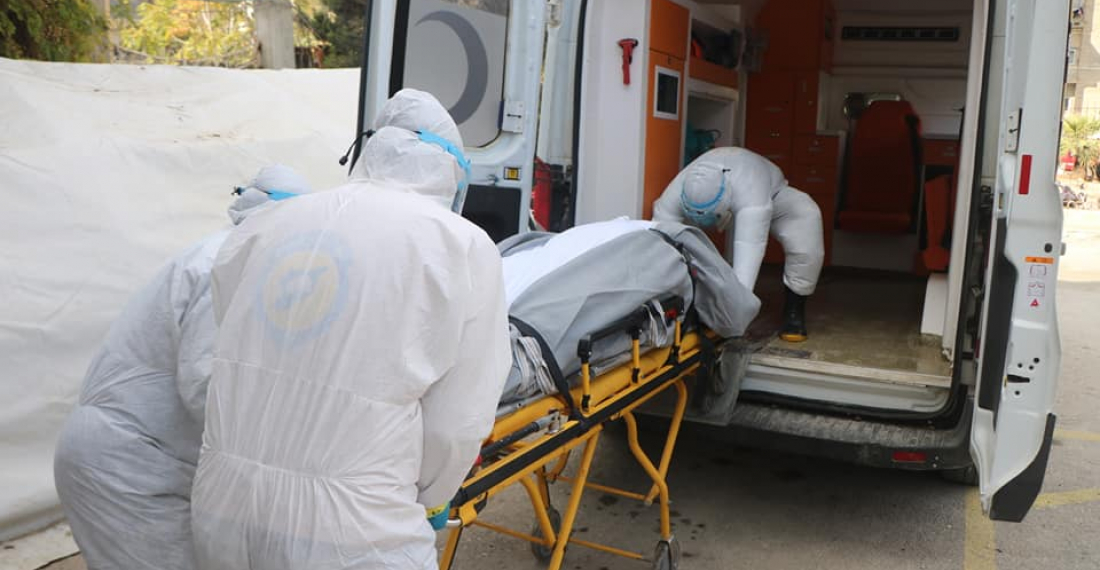Syria's White Helmets, officially known as Syrian Civil Defence, are shifting their function from saving lives of people buried under the ruins of war to burying the deceased from COVID-19.
The organisation became well-known after a film documentary recorded their work during the civil war. White helmets helped save thousands of lives in war-torn areas. The volunteers are now focusing on burying the victims of the pandemic. In Idlib, one of the last opposition's strongholds, White Helmets handle bodies that are possibly still contagious from the hospital to their final resting place.
Idlib is located in North-west Syria and is home to 2.7 million civilians displaced from other parts of the country. Idlib has registered more than 20,000 infections and nearly 400 deaths, although officials believe these figures are an underestimation.
"This work is extremely difficult, but we have no choice but to continue. People need us,” said Ahmed Al Masry.
The 32-year-old joined the White Helmets in 2015. Speaking to the newspaper The National, he says that the job is difficult regardless of weather the threat is from bombs or virus.
"Whether it's the virus or the bombs, it's a hard job. And of course, it is difficult for my family too. They worry a lot about me. My relatives often ask me why I don't quit,” he said.
Many of the volunteers in the White Helmets suffer from haunting memories.
"Every memory is an agony. But some are worse than others. I have images in my head of dead children, buried under the rubble. Two years ago, I was called to the scene of an airstrike where there were no survivors. It turned out it was the home of relatives,” he said.
Despite a fragile ceasefire negotiated in March 2020, the Syrian government and oppositions occasionally still engage militarily with each other. The coronavirus is viewed as a war inside a war. Syria's only hope to fight the pandemic is the WHO's Covax scheme– a global scheme to vaccinate people in poor and middle-income countries around the world.






